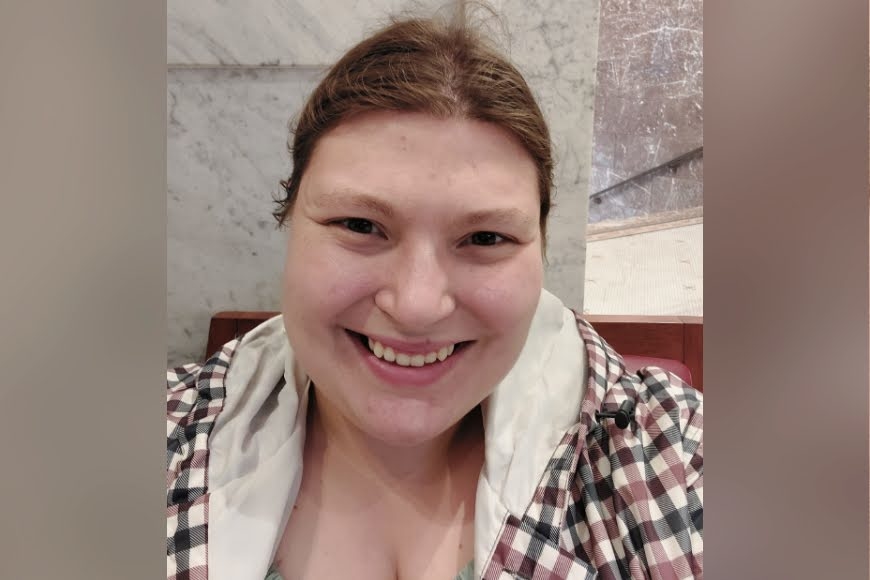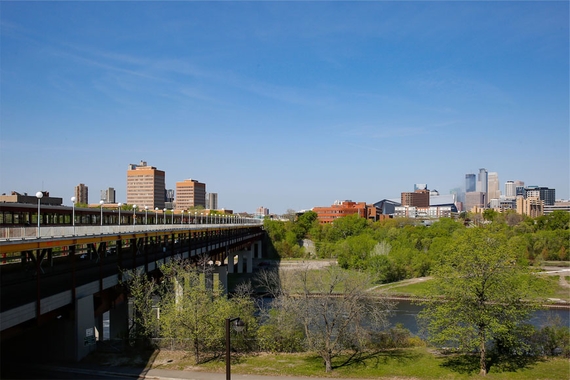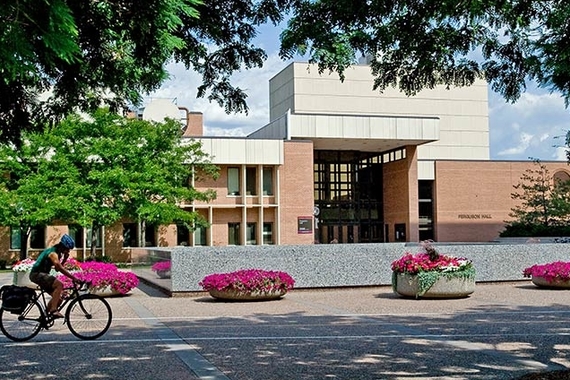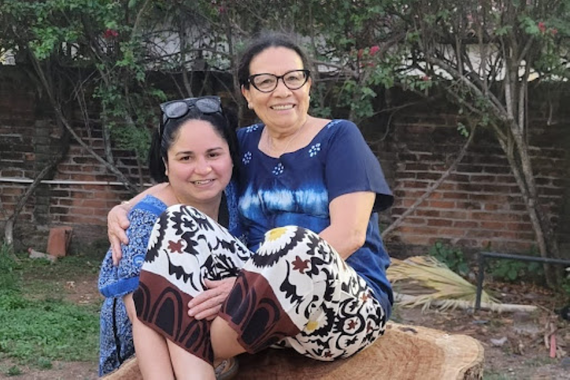“The Hearts of Their Nation”: Learning from Indigenous Women Leaders
Jayne Kinney is a fifth-year PhD candidate in history with an American Indian and Indigenous Studies (AIIS) minor. She holds the Sara Evans Fellowship in Women’s History. We asked her about her approach to research and women who inspire her.
Tell us about yourself and what you study
I study Mandan and Hidatsa women and how they led historically and continue to lead today. My work is relational. I'm a settler scholar from North Dakota, with some community connections to the Mandan, Hidatsa, and Arikara nation.
I look at the different spheres of influence and systems in which women develop and maintain kinship-based and reciprocal leadership. I am interested in women as builders of kinship, clanship, community, and nations, and their roles in resistance and community resilience through adversity such as settler colonialism, epidemics, and physical destruction of land due to the Pick–Sloan Missouri Basin Program dam project in the 1950s.
My research topic spans from 1837 to about 1950, though I also use origin stories and research with contemporary women and leaders, incorporating their stories into my work. I put the leadership of women today in context with the leadership of their grandmothers and great-grandmothers to show how these systems and networks not only existed in the past but how they set up these networks that continue.
What do you love about this work?
My work is inherently relational. Although I am white and grew up in limited relationship with the Fort Berthold communities, working with people in community is really what energizes my work. My work is also inherently reciprocal. I don't want to be just another scholar who comes in and tells people their own history. I don’t just want to get a dissertation out of this, but also to benefit the community.
A large part of my research involves speaking with leaders. I ask them about what leadership means to them and about historical events, but also what they would like to have recorded in the academic historical record, and how I can support their existing work.
For example, when I interview someone, I always ask what I can be looking for in the archives for them. The Sara Evans Fellowship has allowed me to travel and to do research in nine archives across the United States. I not only look for things for my project, but also look for things for community members, to help them in their continued resistance and resilience work. That really energizes me: knowing, at every stage of this research, I've been working with community members to uplift and to support their ongoing work. That really makes all the difference for me.
It's easy in the academy to feel disconnected from your research, because we're busy teaching classes, writing papers, and sending drafts to our advisors. But when I'm on location, or exchanging emails or Facebook messages with members of the community and hearing about the amazing work that leaders are doing today and the dynamic role of women in that leadership, it makes it all worth it.
What brought you to the University of Minnesota?
Minnesota is at the cutting edge of American Indian and Indigenous studies and global Indigenous studies. The methods that I've learned here have been foundational and transformational. I’m talking about things like decolonial work, resistance and resilience, working in relationship with Indigenous communities, and about the importance of acknowledging a person's positionality—especially for settler scholars like myself—but also highlighting the importance of all of our diverse perspectives that we bring to our research.
Being in the history department with the AIIS minor from the American Indian Studies department has been a great fit for me and what I want to do. I approach my historical work through that AIIS lens. It helps me especially as I look at broad systems of Indigenous relationships, to take off the lenses that historians often have that bind stuff within a specific timeframe or within a specific geography and, instead, highlight Indigenous conceptions of time and space and relationality—and to put that at the forefront of my work.
The AIIS program is so multidisciplinary; it allows scholars from across the University to apply this Indigenous lens to their work. That includes other fields within the liberal arts, but also areas like forestry, agriculture, the hard sciences, and medicine. The minor is vital because it provides the flexibility to do things like learning to work with Indigenous communities, conducting oral history research, and thinking about your work from ethical and Indigenous-led perspectives, even if those things aren’t part of your primary program.
Learn about the
How has the Sara Evans Fellowship supported you?
This fellowship this year has supported the final stages of writing my dissertation, which I will defend in May. Without this fellowship, I would not have had the time or the resources to write this dissertation and to be in consultation with members of the Fort Berthold community.
It helped me to balance life as a female scholar with other life responsibilities as well, like being a wife, a graduate instructor, and serving in student leadership. I'm involved with the Council of Graduate Studies (COGS), as speaker last year and a justice this year, which is a huge time commitment. Having to find other employment on top of that would have been pretty much impossible, so having the fellowship made writing this year and working toward completion possible.
Tell us about some of the Indigenous women leaders you’ve encountered through your work
I’ll share a quotation that has inspired a chapter of my dissertation. It’s from a woman named Joan Young Bird, who was a Hidatsa leader and teacher. She’s no longer with us, but I was able to speak with her near the beginning of my research. She told me that “women are the hearts of their nation and their families.” That concept has mobilized my entire research. That's why my dissertation is “The Heart of Their Nation.”
Another person who comes to mind is Dr. Twyla Baker, president of Nueta Hidatsa Sahnish College. A couple of years ago, she worked with the Minnesota Historical Society to digitally repatriate the Gilbert Wilson Collection, which is an anthropological collection of interviews conducted with Mandan and Hidatsa and Sonesh folks in the 1910s and ‘20s. This large-scale digital repatriation includes works that have become relatively famous publications, such as Buffalo Bird Woman's Garden. Now, through this digital repatriation, tribal members have access to it and the Mandan, Hidatsa, and Arikara nation has some control over how their own words are used.
Mandan and Hidatsa folks have always been at the forefront of repatriation efforts. The first documented repatriation in the United States actually was of a Hidatsa sacred bundle in the 1920s or ‘30s. And they continue to be pioneers of repatriation efforts.
Learn more about this digital repatriation:
I also want to mention Representative Ruth Buffalo. She's a Hidatsa woman from the Fargo-Moorhead area, and serves on North Dakota's state legislature, where she, Twyla Baker and many other indigenous women were vital in passing a bill that requires all levels of K–12 education to include Indigenous stories and Indigenous history. To paraphrase Twyla Baker, the effort was “a coalition of Auntie power.” And now all students going through the North Dakota public school system will know [learn] about the history of Native American folks and the dynamic leadership of Indigenous people, especially women. That work in North Dakota could possibly be a good template for other states, like Minnesota.
Sara Evans Fellowship in Women’s History
Carrying on the legacy of Professor Emerita Sara Evans, this fellowship supports outstanding graduate students in women’s history.
Make a Gift



